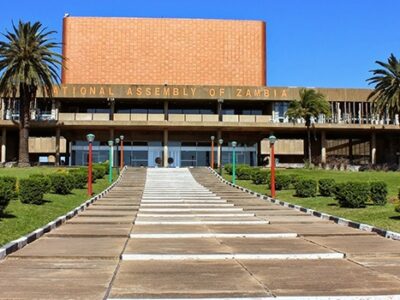As Zambia continues to grapple with developmental challenges, digital awareness has emerged as a powerful catalyst for change, unlocking new opportunities for economic growth, education, healthcare and governance.
As internet access expanded, a new era of connectivity and possibility was emerging.
The introduction of digital media rights led to the capability to access a large amount of information within the Zambian landscape.
With this capability in a digital environment came the need for the public to know the rights that they were entitled to and how these rights influenced public perception and policy.
It was therefore, important to navigate the far-reaching impact of digital awareness in Zambia, highlighting its potential to foster a more informed citizenry.
The digital awareness was bridging the gap between possibility and reality, the internet made it easier for people to access information and news, thus, promoting informed decision-making.
As more citizens become more aware of their digital rights, they demanded more from their government and encourage dialogue between the two.
Government responded to the growing awareness campaigns, the Zambian government launched initiatives like the National Digital Transformation Strategy 2023-2027, which was aimed at establishing a coordinated approach to building the country’s digital economy.
Through the Ministry of Information government enacted laws like the Cyber Security and Cyber Crimes Act in 2021, so as to regulate critical information and ensure online safety.
By promoting digital rights, awareness campaigns help reduce instances of online harassment and cyberbullying.
Digital rights awareness campaigns played a role in pushing for legal reforms to better protect digital rights and have influenced the enactment of all these policies.
“The awareness campaigns have raised alertness about rights to privacy, freedom of expression and broader impacts of technology on the society,” noted William Choongo, a third year student at UNZA pursuing a bachelor’s degree in Information Communication and Technology.
He stated that the campaigns are of paramount importance because citizens now know how to use their digital rights to enhance their freedoms to be heard.
Thereby, having an influence on the public’s perception. However, he added that not so many people know about these rights hence, talking about them often through the awareness campaigns was very vital.
Economic growth was another aspect of these campaigns, digital awareness enabled online transactions, e-commerce and access to global markets contributing to economic growth.
These campaigns not only educated the citizens about online safety but also empowered them to navigate the digital word effectively.
Emmanuel Mulenga a third year student studying Information Communication and Technology at Kapasa Makasa University pointed out that the awareness campaigns sparked resistance to government surveillance.
“The public resist government’s surveillance and censorship leading to a more informed and vocal populace,” he said.
Mulenga added that this had been evident in the public’s reaction to government attempts to restrict internet access or monitor online activities.
“Awareness of digital rights encourages citizens to participate more actively in civic, including holding the government accountable, engaging in policy discussions and advocating for their rights,” he mentioned.
In conclusion, as Zambia continues to evolve digitally, it is essential to prioritise digital rights awareness and ensure that all citizens have the benefits of the digital world.
WARNING! All rights reserved. This material, and other digital content on this website, may not be reproduced, published, broadcast, rewritten or redistributed in whole or in part without prior express permission from ZAMBIA MONITOR.












Comments